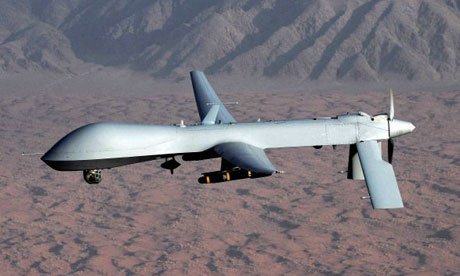By Madeline Schiesser
Impunity Watch Reporter, Europe
MOSCOW, Russia – The year 2012 began in Russia with street protests demanding that the newly elected parliament honor its promises of political reform. It ended with Russian President Vladimir Putin signing a ban terminating American adoptions of Russian orphans. In between, the collection of human rights abuses caused U.S.-based Human Rights Watch (HRW) to describe the year as the worst for human rights since the fall of the Soviet Union in a newly released annual report.

The report analyzed key human rights issues in more than 90 countries, including Russia. (The United States was also examined.) The report found that since his return to power, Putin “oversaw the swift reversal of former President Dmitry Medvedev’s few, timid advances on political freedoms.” Critics say that the Kremlin’s actions have been aimed at quashing public dissent. The authors of the report suggest that Putin’s acts, backed by a parliament dominated by members of the pro-Putin United Russia party, are motivated by a fear of mass street protests.
The year has seen a sharp increase in laws and government control that, according to Rachel Denber, deputy director of HRW’s Europe and Central Asia division, create an atmosphere of fear. A June law significantly raised fines for people found participating in unapproved public demonstrations, re-criminalized libel, and imposed new restrictions on internet content.
Another summer law, which went into effect in November, requires nonprofit groups that receive foreign funding to register as “foreign agents.” Many non-governmental organizations (NGOs) fear this label, which has Soviet-era undertones, will scare away the very people they want to help. USAID (United States Agency for International Development) was forced to stop operating in Russia in September, and, thanks to a December law, NGOs can further be sanctioned if they engage in “political” activities and receive funding from US citizens or organizations.
Furthermore, a widened definition of treason has loomed since autumn, which could threaten organizations and individuals conducting international advocacy.
The report was further critical of Russia’s treatment of the Pussy Riot punk band protestors, two of whom were sentenced to 2 years in prison for an anti-Putin song-protest in a Moscow cathedral.
It has furthermore been a difficult year for opposition leaders and opponents of Putin’s Russia. In May violent protests erupted in response to Putin’s inauguration; the courts have been slow to deal with the protestors, but have been harsh. Opposition leader Sergei Udaltsov was charged with conspiracy to organize mass riots. Facing the same charge is Leonid Razvozzhayev, who claims he was kidnapped from Ukraine and forced to sign a confession.
Recently in the new year, legislation for a nation-wide ban on “gay propaganda” came before parliament. However, the report drew attention to Russian local “anti-gay propaganda” laws, under which in May a prominent Russian LGBT rights activist was convicted. Moscow drew further criticism for its ban on Gay Pride Events.
The report further discussed persecution and torture of practitioners of Salafism (a form of Islam) in the North Caucasus by authorities who assume the practitioners support the Islamist insurgency there. The report further criticized Chechen leader Ramzan Kadyrov’s system of collective punishment against insurgents’ relatives and suspected supporters.
Concerning the Olympic Games in Sochi scheduled for February 2014, the report additionally condemned the removal of hundreds of local families to make way for Olympic buildings. Although most homeowners were compensated, often the amounts were unfair and the process lacked transparency.
Russia’s sudden termination of the bilateral adoption agreement between the United States and Russia in retaliation for the Magnitsky Act, catching Russian orphans, some with disabilities, in “an eye for an eye” crossfire, was not included in the report, although HRW commented on it in a subsequent press release. Sergei Magnitsky is expected to be tried posthumously later this year.
Creating a permanently broken system, the authors noted that while the European Court of Human Rights has issued more than 210 rulings against Russia, the government only pays the required compensation, and fails to conduct effective follow-through investigations, thereby failing to carry out the core of the judgments.
Hugh Williamson, HRW’s Europe and Central Asia director explained, “Instead of meaningfully investigating human rights abuses, the government is spending time and energy retaliating against civil society and free speech.”
Rachel Denber stresses “We can’t be silent about the situation in Russia today,” because, as part of the Kremlin crackdown, Russian authorities equate human rights work with violating Russian sovereignty. She summarized, “Any activity can be portrayed as betrayal.”
Moscow has yet to make an official statement on the report, however, Russian Foreign Ministry spokesman Alexander Lukashevich, dismissed the severity of the situation in Russia while he remarked an official statement would be issued soon. “I have not read the report yet,” Lukashevich said. “I think we will make a comment later and show that the human rights situation in Russia is not the worst.” Instead, he suggested the United States and European Union look at their own histories “before criticizing others.”
However, although Williamson considers this “the worst year for human rights in Russia in recent memory,” he notes that “Russia’s civil society is standing strong.” Yet, he also says, “With the space around it [civil society] shrinking rapidly, it needs support now more than ever.”
For further information, please see:
Moscow Times – Last Year’s Repression ‘Worst’ in Decades – 1 February 2013
BBC News – Russia’s Freedoms Crackdown ‘Worst Since USSR Fall’ – 31 January 2013
HRW – Russia: Worst Crackdown Since Soviet Era – 31 January 2013
RIA Novosti – Human Rights Watch Blasts Russia in 2013 Report – 31 January 2013
RFE/RL – Rights Group Warns Of Challenges to Democracy – 31 January 2013
Washington Post – HRW: Worst Year for Human Rights in Russia Since the USSR Collapsed – 31 January 2013
HRW – World Report: 2013 [Full Report] – 31 January 2013


